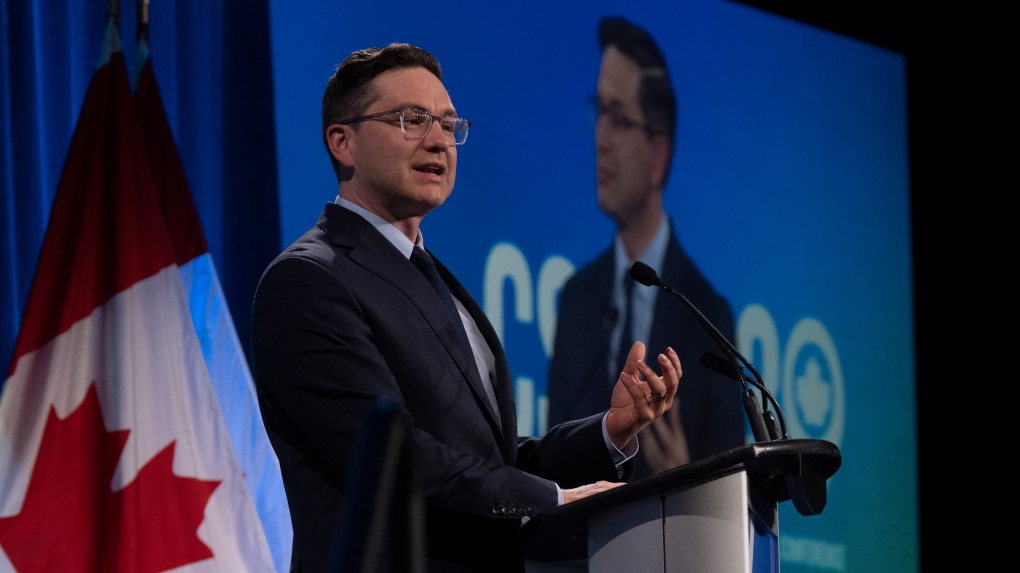
OTTAWA – Pierre Poilievre rallied a room of conservative faithful gathered in Ottawa Thursday by calling on them to become «champions» of ordinary people.
It’s a picture the Conservative leader has painted before to his party’s caucus: one in which the «everyday common person» is under attack by Prime Minister Justin Trudeau.
Throughout his address at the Canada Strong and Free Network event, Poilievre evoked images of the single mother, police officer, farmer and general worker whose interests, he said, are not represented in Ottawa.
«More and more, I see them rising up because they feel like they’re losing control over their lives.»
Poilievre’s refrain — a message he believes will open the party up to a coalition of voters needed to defeat the Liberals — was delivered hours after Alberta Premier Danielle Smith said conservatives across the country have another challenge to overcome: winning in cities.
With Albertans set to go the polls in a provincial election this year, Smith said her United Conservative Party has more ground to gain in the province’s two largest cities: Calgary and Edmonton. Insiders predict a competitive race with the Alberta NDP.
Smith replaced Jason Kenney as party leader and premier last fall when he resigned after getting only 51 per cent support in a leadership review.
Kenney, who also attended the conference in Ottawa, faced considerable backlash leading up to that vote for his handling of the COVID-19 pandemic, and Smith told Thursday’s crowd that the party lost «a lot» of its base.
She ran for its leadership promising to bolster provincial sovereignty and appealing to party members and others who opposed public-health measures like vaccine mandates as an infringement of personal freedoms.
«The good news is that we’re finally united as a conservative movement,» she told Thursday’s crowd. «Now, we just need to gain a little bit more ground in Calgary and in Edmonton.»
She added: «This is a challenge for all conservatives. We have to figure out how to win in big cities because increasingly, people are moving to big cities.»
That belief is shared by the federal Conservatives, with Poilievre spending many of his weekends in Metro Vancouver and the Greater Toronto Area — areas where the party has struggled to gain ground in the past several elections.
Since becoming party leader last September, Poilievre — who has long talked about inflation, food prices and cost-of-living issues — has increased his focus on crime, an issue that affects many who live in cities and suburbs.
He has adopted what some say is a controversial policy on drugs, opposing the practice of providing drug users with a safe supply of certain illicit substances, despite a broad consensus from experts who say that is necessary to prevent accidental overdoses arising from an increasingly toxic drug supply.
Pointing to regions such as Vancouver’s Downtown Eastside, Poilievre recently slammed safe supply as a «failed experiment,» saying he would instead focusing on increasing access to recovery and treatment spaces.
On Thursday, Smith said she believes her government’s drug policy — which Poilievre has touted as a model to follow — is supported by people living in cities like Edmonton.
Poilievre is also looking to grow the party’s support in urban ridings by getting more immigrant and visible minority communities to consider voting Conservative.